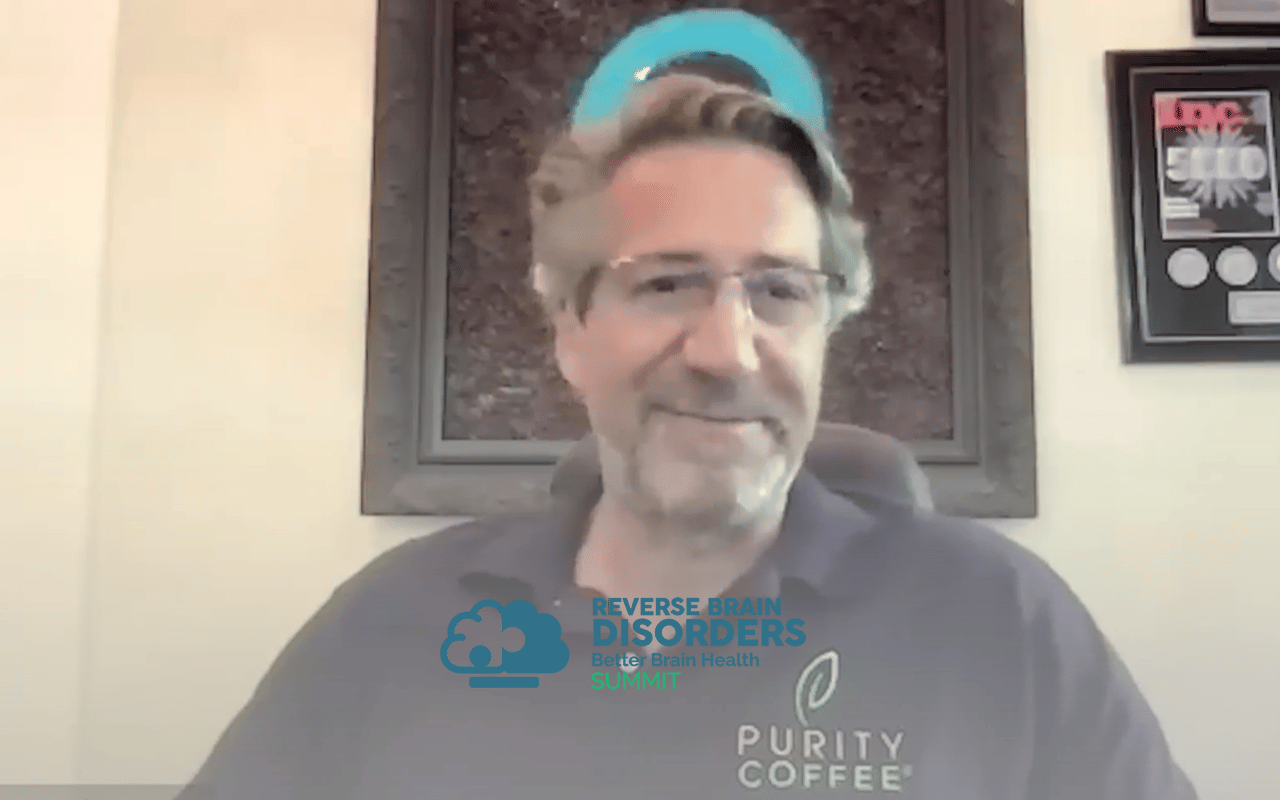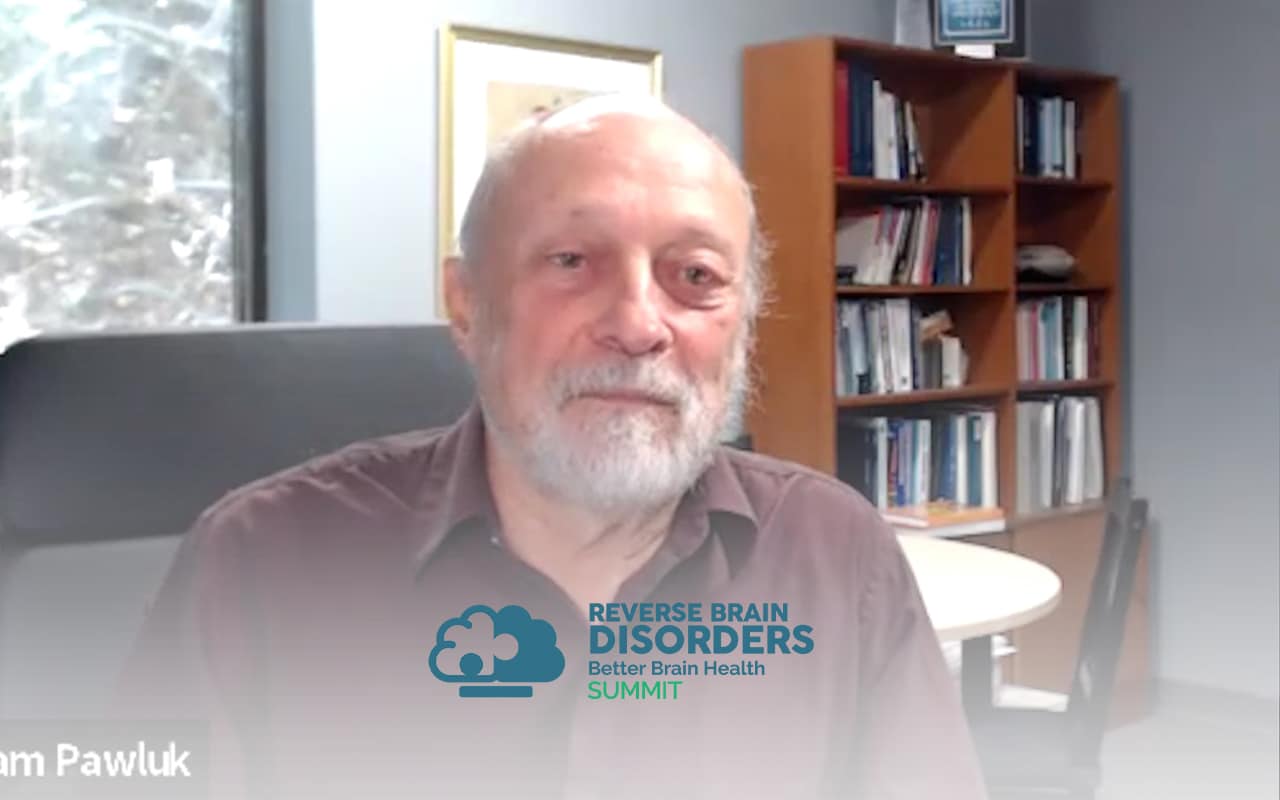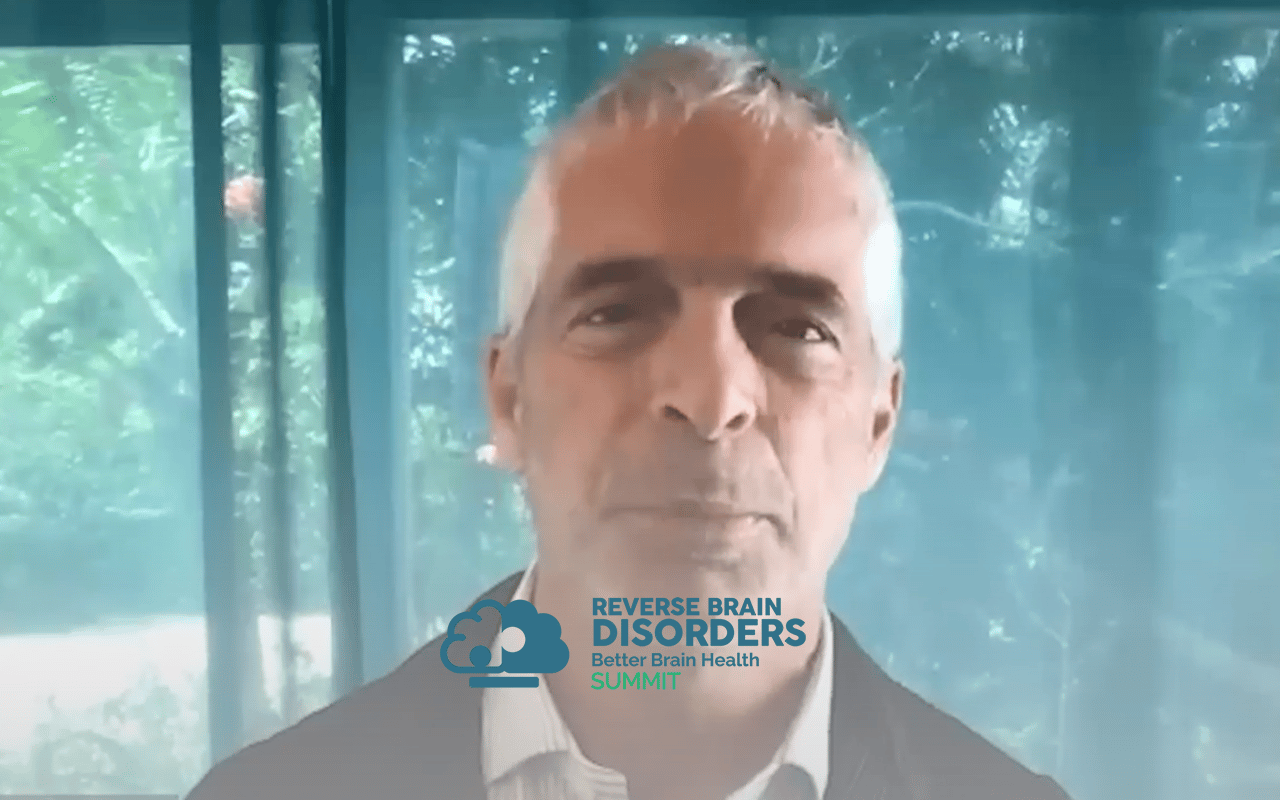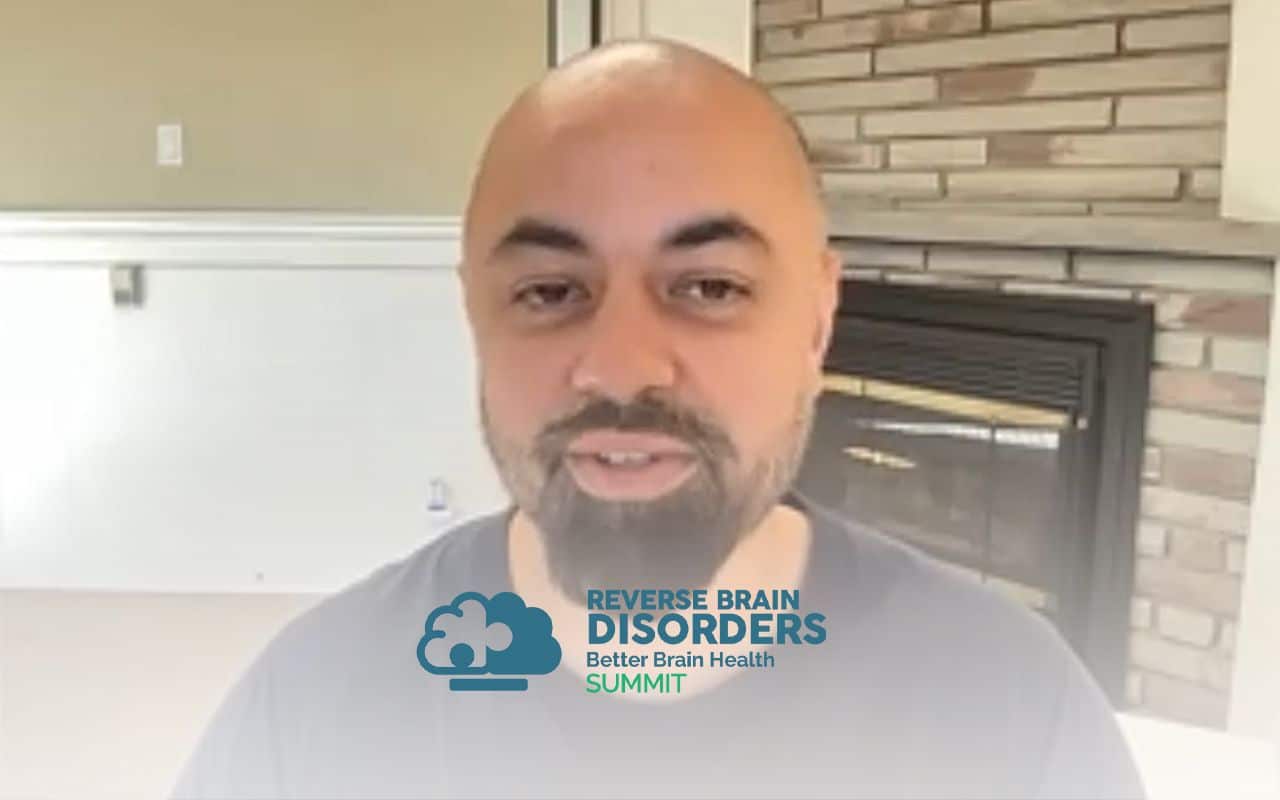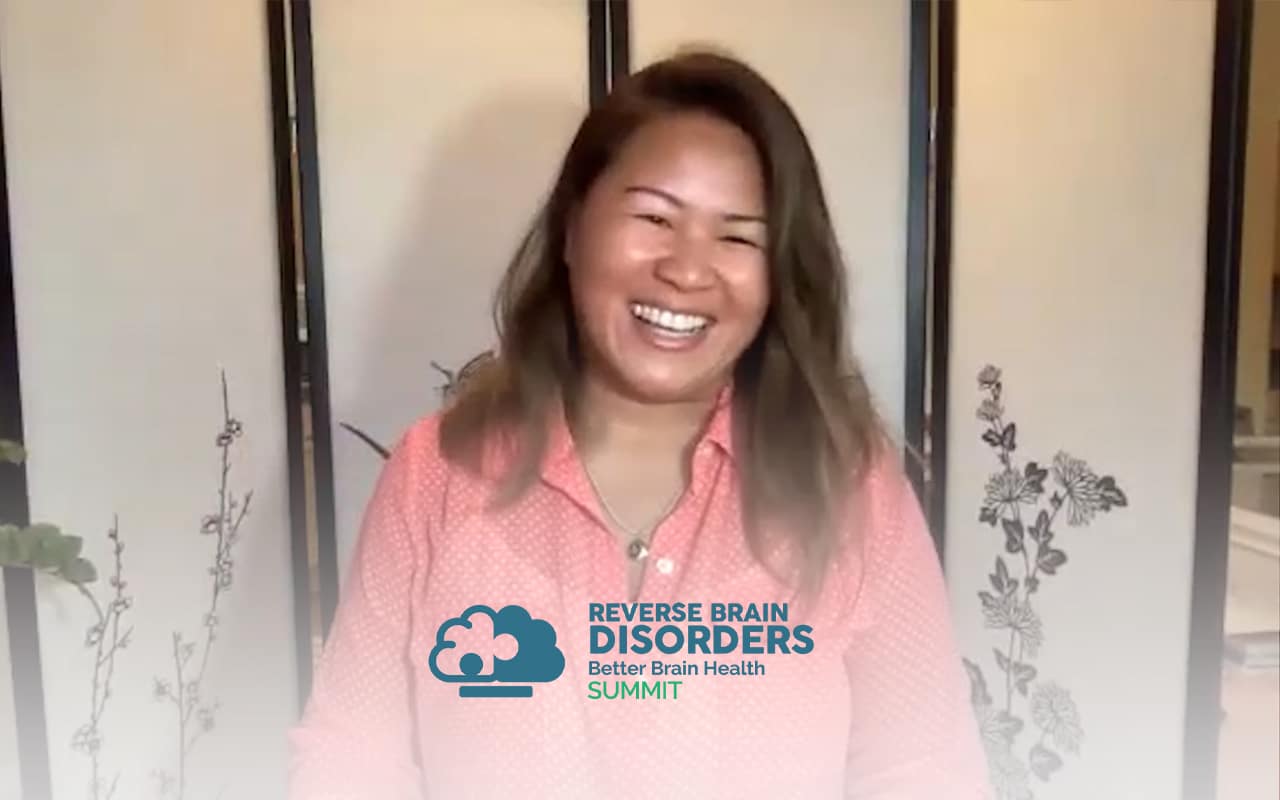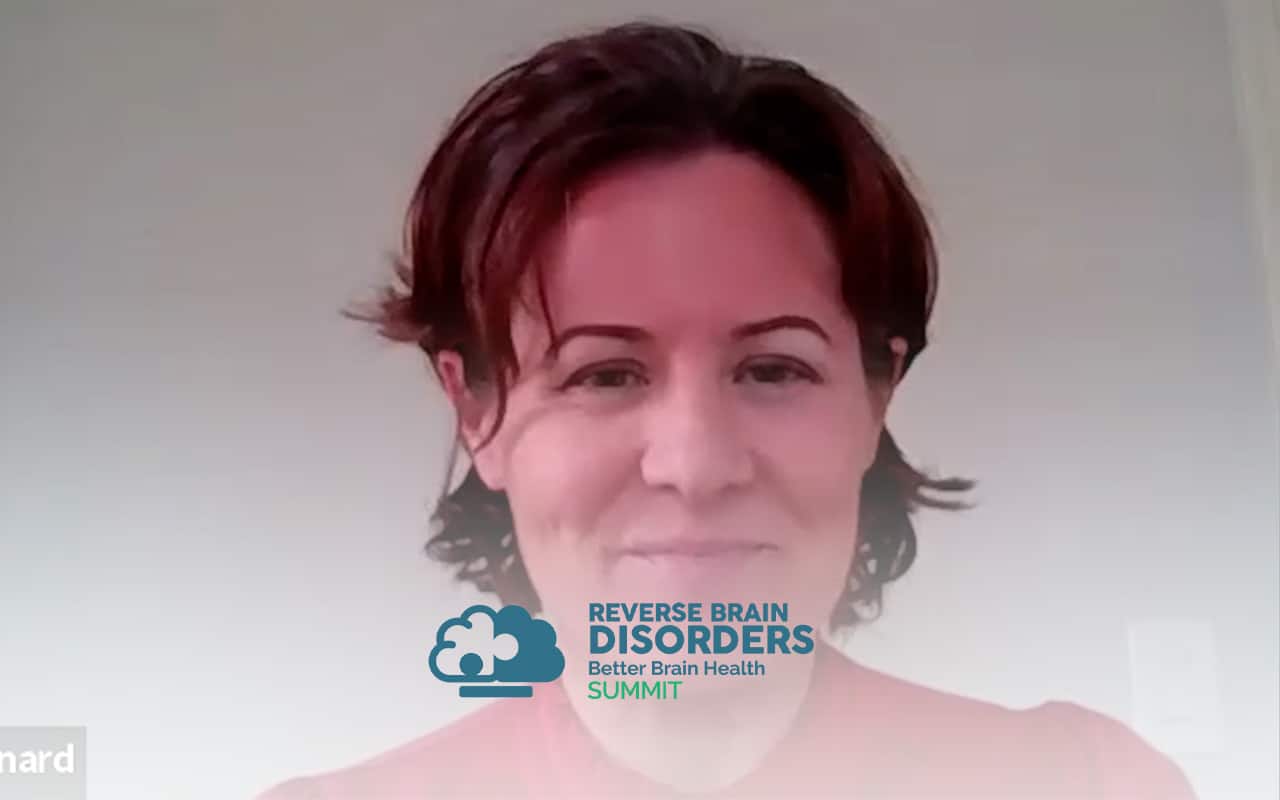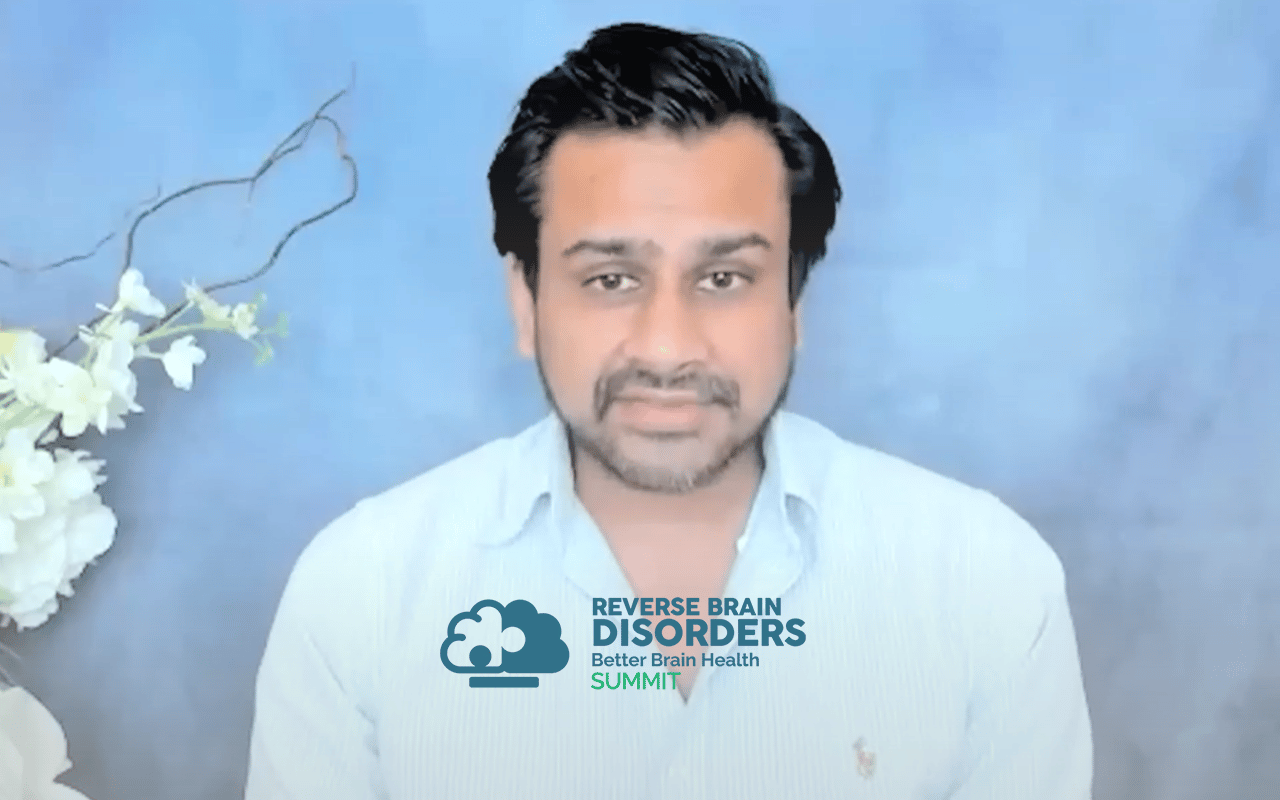Join the discussion below

Dr. Ruan is the Founder and CEO of Texas Center for Lifestyle Medicine. He devotes his career in practicing and building systems that allow for efficient delivery of healthcare. He is a board certified internal medicine physician but also have advised with companies to improve their workflow, company culture, marketing,... Read More
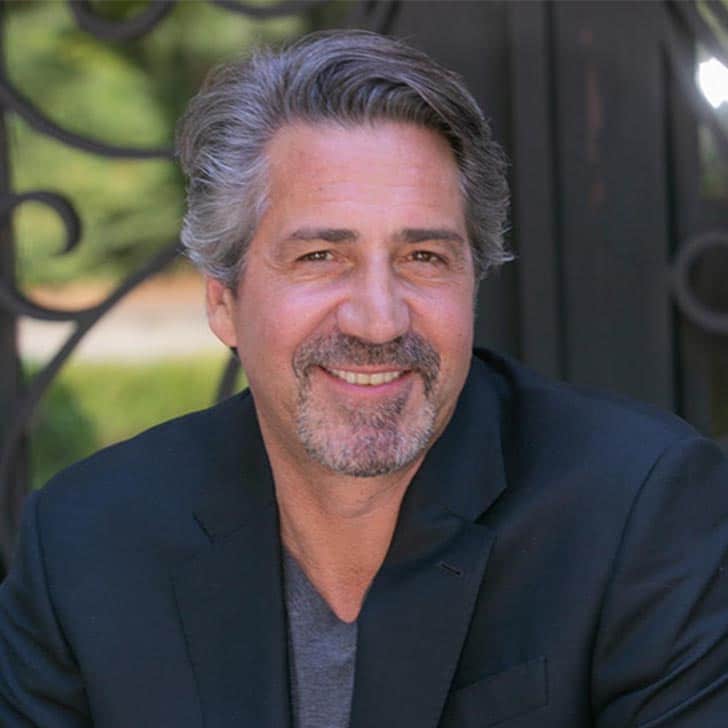
Andrew Salisbury is originally from Cambridge England. In 2006 he founded Corsidian in Mexico to provide contact centers software to the largest banks and call centers. Over 6 years it expanded to offices in 5 countries and installations in 13 countries and was the largest provider of call center software... Read More
- Why coffee can be a superfood if it’s the right quality
- Studies show coffee can improve brain function
- Why artificially caffeinated beverages do the opposite of what coffee does to the brain
Cheng Ruan, MD
You know, coffee is one of everyone’s favorite topics, I think, and it’s one of mine as well. And I think there’s a lot of misconceptions about coffee because there’s a lot of studies actually done coffee that’s showing beneficial things for the brain. And I’m not talking about caffeine. Caffeine itself is controversial, but actual real coffee has been shown to be beneficial for the brain. So I wanna distinguish the discussion between coffee and caffeine. We’re talking about the actual coffee today, the good brown liquid goal that they like to drink. So there’s no one better to talk about coffee than Andrew Salisbury. He’s a fantastic friend of mine, and he originally spoke at one of my lecture events in 2017, where we go really deep into coffee, which can be found on my YouTube. So, Andrew was the founder and CEO of purity coffee and believe drinking healthier coffee is one of the easiest things you can do to really improve your wellness and performance longevity. Now Andrew’s team as an interview.
Hundreds of professionals and doctors and dieticians that really take in coffee from just a beverage into the field of potentially a health food. And that’s what I want to talk about today. There’s a huge disconnect between coffee and health, and I really want and you and I to kind of go into this discussion so I can’t wait to introduce him. So one of the great things about, um, coffee and his company purity coffee is that during the pandemic they were shipping coffee to healthcare practitioners to really improve the way that they’re able to deliver healthcare. So it’s a fabulous company. So join me in welcoming Andrew to the stage. Well, listen, welcome to the show. Thanks for being here. Appreciate you.
Andrew Salisbury
Pleasure.
Cheng Ruan, MD
You know, a few years ago, I got this. I guess it must have been four or five years ago. You came down to Houston, to one of my lectures we have for physicians. And, we recorded a YouTube video that was very popular. It’s all about coffee, and my mind was blown during that conversation. And so, this is the better brain health summit. So we’re going to be really focusing on the brain. And the benefits that coffee can potentially bring. But let’s start with the age old question that everyone asks. Is coffee healthy? What do you think?
Andrew Salisbury
Well, obviously I’m a little bit biased having a coffee company and having a company that’s focused on the health benefits of coffee. So, you know, my answer is a resounding yes, but I think there’s some caveats to this, which is that when you think about most food, as you know, I mean, it’s very difficult to say one. Food is good for your bad for you anymore. Now, if you talk about Salmon Farm raise or is it wild salmon, it’s take, Is it grass fed? Or is it? I mean, everything comes with a little bit of a disclaimer, so I believe strongly the coffee is a natural super. It’s one of the highest sources of antioxidants in the American diet, but at the same time, there’s some practices in coffee that minimize the health benefits of the coffee. So, you know, sometimes mold and mycotoxins is an issue and coffee. You want to make sure that it’s free of those sort of contaminants. Heavy metals. Your coffee needs to be free, absolutely needs to be organic, so you know there’s a cabinet to that. But if your coffee is roasted in a medium roast, ideally and they pay attention to the anti-oxidants in the coffee, I mean, it’s probably one of the best foods that you can order drinks that you can have for long term health and longevity.
Cheng Ruan, MD
Amazing. Listen, we’ve had purity coffee in my kitchen. I’m actually my parents’ house right now. Downstairs in my mom’s kitchen. That’s all we have, right? It’s the only thing that makes all of us, feel good. Nice sense of calm, no gentleness and stuff like that. What contributes to the sort of side effects of coffee that we hear about?
Andrew Salisbury
Yeah, it’s a really interesting question because people often feel that the side effects of associated with coffee like, you know, stomach acid stomach, you know, just sort of the letters nervousness, cold sweat, that sort of thing as a result of coffee. And it’s not a result of coffee as a result of bad coffee. So if you’re getting those responses because you’re not drinking coffee of good and quality, So if your coffee is high in, uh antioxidants and none of the sort of the negative downside. You shouldn’t experience any of those side effects. We don’t really know what exactly contributes to the side effects because we make every decision based on health and its removal of lots of these things. Like, you know, no pesticides on the coffee needs to be organic. So some people are reacting to pesticide residue and coffee. Some people are reacting to coffee that scale. So the lipids on the coffee capital carry all those sort of on the coffee really rancid. You know, if your coffee is over 15 days old, then you’re drinking rancid. 15, maybe 25 days. You’re drinking rancid lipids on the coffee. So there’s a lot of things that contribute to the side effects of coffee. But really, that all of those things can be avoided in the sourcing. The roasting coffee, right?
Cheng Ruan, MD
Absolutely. About three years ago. I actually did a talk over here in college of medicine department neurosurgery with people that have gone through strokes in brain hemorrhage and, for that talk, we actually talked about superfoods and what kept coming up. Whenever I did my partner’s searches and, like researches is coffee and how beneficial it is for the brain. Now, I started with post stroke, and there’s evidence showing that about five cups of coffee per day have beneficial effect on something called Reap refusing to number, so basic, layman’s terms. What that means is that after stroke, there’s an area of the brain that doesn’t have blood supply to. It kind of dies off, right, but there’s a transition area. We’re still salvageable. So there’s evidence showing that coffee, like drinking coffee, can actually increase the blood flow to the salvageable areas, which is very fascinating.
And then that got me into a lot of other neurological disorders from memory laws and Alzheimer’s disease. And Parkinson’s , and so obviously there’s something going on and coffee, and that makes sense because there’s antioxidants and stuff like that. But they’re also studies of negative effects on coffee. But most of those are looking at, um, very nonspecific things inhabits, and there’s a lot of confounders those studies because a lot of those people smoked. In fact, there’s one study that’s just done on truckers, and so a lot of those not not saying truckers are bad in any way, shape or form. But it’s a very specific population, right? And so there’s a lot of things that are really out there. And, you know, one of the reasons I have you on the summit is really dispel a lot of those myths. So what is it? So early, you said that sometimes you get these effects these sort of bad effects from bad coffee. Like besides, like, you know, toxins and coffee house grown like what makes the coffee actually good and what makes it really good? And how do we know?
Andrew Salisbury
Yeah, I think that’s probably two factors to look at. That one is the absence of bad stuff, and the other is the presence of good stuff. So what you want the most of it is the organic acid lactic capital car. We all have these very sort of impactful positive compounds present and coffee. And so the only way for you to absolutely have the good things that are available in coffee and the reason why it’s anti-inflammatory, and there’s a lot of health benefits associated with. But the issue is that the amount of organic acid. So let’s just focus on this one thing. The biggest antioxidants and coffee is apologetic acid. That varies from crops. Crop harvester harvests region to region. It depends on rainfall. It depends on the soil. Quality depends on lots of different factors. So one of the first things you have to do is you.
You can’t possibly know which farmer it’s going to produce the most iconic assets in their coffee in any given season without first testing for all of the coffee. So the very first step is that you we test around 50 to 60 coffee as well as having an ongoing sort of testing protocol with our coffees to find the ones that are highest antioxidants. So that’s the first step. Make sure your coffee has the most amount of antioxidants. I mean, we did a test of the top 49 brands of coffee in the U. S. And one of the brand name them. But it was a very high end organic coffee and really great tasting coffee, and we had 10 times the antioxidants of that particular coffee, which means if you care about antioxidants, you have to drink 40 cups of coffee in order to get the same benefit of four cups of ours. So the antioxidant level is very important. And then also the way that the coffee is roasted, maintains or destroys the anti-oxidants in the coffee. So you have to pay attention to the roasting curve. It’s not about turning green coffee brown and making it tasty. It’s about keeping the anti-oxidants in the coffee when you roast. And the only way to do that is to design a roasting curve for every harvest of coffee, the specific to that coffee to maintain the anti-oxidants in the coffee.
Cheng Ruan, MD
It’s pretty complicated.
Andrew Salisbury
It sort of is. It is complicated in the sense that there’s a lot of decisions, but because our North star is very clear, were really focused on every decision based on health, not compromising anyway. You know a lot of these decisions. While they’re a little complicated, they’re easy into define, which is the winner and which is the best decision.
Cheng Ruan, MD
Did you all coffee companies or coffee branches do third-party testing for toxins and stuff?
Andrew Salisbury
No, no. Okay. Unfortunately, you know what’s interesting is there’s different standards, um, in different countries, so the standards for, Let’s say, a toxin, which is obviously a very negative compound, that is, um, that comes from from old is a lot higher in terms of what they’re allowing in Europe. I mean, not not sorry a lot lower. Their standards are much better in Europe than they are in the U. S. So you often find coffee that has some of these problems just been diverted to the U. S. A. Standards are really important. And you’ve probably heard this for years. There’s a lot of talk about Michael Jackson molding coffee, you know, popularized by bulletproof. What I don’t understand is this is one of the cheapest tests in the world. Is 100 and $50 to test the container and find out whether your coffee has Michael toxins in. But people don’t do that because they don’t want to know the answer. So I mean, the test is easy. There is very easy to put a label on your bag and say it’s tested for Michael toxins. It doesn’t have any in the coffee, but there’s not much motivation to do it until the customer says we’re done. Can you show us that our coffee doesn’t have these negative animals?
Cheng Ruan, MD
Well, that’s interesting, because I think for me, like any coffee depending on the way that we stayed at home, I mean, it’s left out in the open. You can see more started growing on those things, right? So this home storage matters as well?
Andrew Salisbury
Yeah, the storage of the coffee matters and how quickly you use it. So what? One of the decisions we made earlier on in the nitrogen flush all of our bags. So we wrote the coffee nitrogen, flush it, which means that it’s a gas, and it’s going to be fresh until the moment you open the bag. That’s not always the case. And in a lot of cases coffee comes in a you know, the paper bag or just a bag you buy in the store is not nitrogen flushed, and the issue that you’ve got with that it will, typically stale within about 15 to 20 days after roasting. So even on the store side, if your bag is nitrogen flash and the problem is you couldn’t get off this already stale, and the industry uses sort of like this sort of this best by dates and typically the best by date is a year from when the coffee was roasted, because they’re not required to say the coffee is stale because people are looking at coffee for the health benefits. So, you know, even buying into the store, you can have some issues. The way you store the coffee has had some issues, and containers are much better obviously.
Cheng Ruan, MD
Go to a large coffee branch, whether it’s Starbucks or whatever it is, right. Doughnuts. What is the average time between coffees roasted to when it’s in the store and they sell it to me? It’s difficult to say, but you’re talking.
Andrew Salisbury
You’re measuring it in months, not in days. You’re measuring it beyond the level of when the coffee when you’re losing the the anti-oxidants and coffee are relatively strong, and they still a presence after that period of sailing. The problem you’ve got is the lipids on the coffee, the oils on the coffee. They become rancid. So if you ever see your coffee beans, you see them bright and shiny and they look really nice. That’s actually a bad sign, unless it was literally just roasted a day ago, so either end of the spectrum. If it was posted a day, you’re gonna see a certain amount of lipids on the coffee. But if you’re seeing on the coffee and you can imagine that coffee is at least a month old, you’re seeing stale lipids so well.
Cheng Ruan, MD
The reason I asked you that earlier talked about how you know the longer you are from consuming the coffee after it’s roasted, the more likely that if it’s stored either improperly or just regularly, I guess that you can accumulate some of these toxins on the coffee and the coffee become the coffee beans becomes rancid, right? And so the average chain is giving coffee or selling coffee months after it’s roasted. That doesn’t make me feel very good, necessarily about going to those places right?
Andrew Salisbury
Mentally and physically, because I mean, you know, when you drink coffee, you’ll notice it in your body, and that’s what we encourage people to do. Just pay attention to how you feel. Have a cup of coffee if you don’t feel good and energized. If there’s a crash a couple of hours later, if you’ve got, you know, sort of letters and nervousness. It’s all a reflection of the fact that you just ingested something which wasn’t good for your body.
Cheng Ruan, MD
So you’re saying that any sort of crashes and side effects and stuff like that? It may not be from just coffee in general, but from the brand or cover that coffee is stored in the quality of the coffee. Correct?
Andrew Salisbury
Absolutely. It’s a reflection of the quality of coffee. So if it’s not a reflection of coffee itself, the coffee is handled in the right way. It’s organic. If roasting the right way to keep maintain the antioxidant tested to be free of heavy metals and that sort of thing, you should receive any of those side effects. And I sort of know this now, After when we first met, we have the first sort of years of purity. But now we’ve got nearly twenty-one 1005 star testimonials and which is a great actually. But more than that is that a lot of our customers are reporting the absence of side effects, So at least 25% of our customers are testimonials, say I can drink coffee again. I don’t have the side effects. I don’t have these problems, and we didn’t know it was a sort of one of these sort of surprises for us that we made every decision based on health. But the end result is people who actually feel the difference.
Cheng Ruan, MD
I wonder if you know, because a lot of times when we drink coffee, we go to places and Starbucks and stuff like that. I think our taste buds are kinda used to the coffee and even, like folders I drink just growing up, actually, um, and stuff like that. And sometimes it’s really hard to kind of change behavior, right? But there’s definitely a taste that is completely different. And now that you know, I’ve had good coffee for a number of years, um, I can tell. But before I’m like No, everything tastes the same, but this is very different. It’s more. It’s fruity. Er, it feels a lot lighter, even though that you know, it tastes lighter. There’s less bitterness, but the effects of my brain, my ability to focus and then the concentration and wait for this is actually a whole lot better, or before I’m like, you know, the black, the darker the coffee, the better it is for me. So can you comment on, like, dark roads versus blonde rose, rose, medium or whatever it is and how that really impacts the health benefits of coffee?
Andrew Salisbury
Yeah, and the first thing I would say is that it’s very intentional how you’ve got a sort of tasting coffee, that it feels like it’s a strong sort of taste. You recognize the folders, Maxwell house, that sort of thing. And the reason is that if your Starbucks you’ve got a problem, which is that you’re buying coffee from all over the world and lots of different regions and all taste differently at source, what you want to do is make sure that the experience for your customer in Singapore is the same. Your experience, the customer in Seattle. So the only way to do that when you’ve got a variety of different coffee is to roast it to a level where it all takes to say, like you have a stake. It tastes like a mistake. It doesn’t, you know, you’re not really so burning the coffee to the point where you’re roasting away. A lot of the anti-oxidants creates a uniform taste in the coffee, and that’s what people come to recognize.
A lot of people come to recognize coffee, but it’s not. It’s really burnt coffee. And the issue with that is that if you had a roasting curve, if you look at the curve of coffee where you were ramping out your speed, heat and time and you were roasting coffee in the early stage of roasting, you create a thing called, which is, as you know, is carcinogenic and proposition sixty-five. There’s a focus on the amount of a we have in our food that’s based on the roasting of any carbohydrate is the reaction that drops off relatively quickly in the first stage of roasting. But if your coffee is very likely roasted, you’ll have higher levels of wide and depending on the technology used for hosting that can also create different levels of coffee. Then, as you roast the coffee, the antibiotics and start to drop off. So the very dark roasted coffee while it’s got a uniform taste and we all recognize that as the taste of coffee and a lot of people recognize the taste of coffee. You’re roasting away the anti-oxidants the longer you roast the coffee so that very dark tasting coffee has very few antioxidants in it. Then you create a thing called politics. Automatic hydrocarbon, which is, you know, it’s like from any burn food. You create that coffee, and so that’s a little bit of a balancing act. It’s a little bit of a play between science and science and alchemy and art. You want to create a great tasting coffee, But I also want to maximize the anti-oxidants in the coffee and not creating negative compounds.
Cheng Ruan, MD
So yeah, so to like, high I’d also need a toxin too dark, taking away the beneficial effects. So there’s somewhere in the middle, right? And so when we don’t have access to like the coffee, for example. Right, Let’s say you know, when I’m in New York, we were traveling and usually bring your own coffee. But you didn’t that day. So what are the things that you do? What roast do you do? You do you purchase when you’re traveling and stuff like that? Yeah.
Andrew Salisbury
I love this question because I’ve thought a lot about it. If my wife is traveling, what do I suggest that she drinks if you can’t get purity? So the first thing is, if you go into a coffee shop and the problem is, the more you define your coffee, the less obviously available that coffee is. You can go into a top coffee shop and give them a shopping list of all the things you care about, and they’re gonna look at you pretty funny. But the basic things would be this. You want a good quality specialty coffee so you want especially coffee means it’s the highest rate of coffee, which means that has the least amount of defects. And the coffee is a concept called primary Defects. And there are things like broken beans or insect damage. So especially coffee has the least amount of those. There’s a measurement for that, and it’s very defined, so especially coffee needs to be organic.
Coffee is treated in countries in the world that don’t have the same level of regulations as the U. S. When it comes to the type of fertilizers that used on coffee. So things like yourself in and like I say, you know are often used on coffee crops, and it’s not just bad for the farmers, but it’s bad for the people to consume the coffee so organic, especially great. It’s very unlikely, unfortunately, that you will find a coffee that’s been tested to be free of mycotoxins, but your limit your risk. If you’re getting specially great coffee, it’s not completely avoiding that risk, but you’re limiting your risk, and then you would want a coffee. This medium roast.
The reason I suggest medium roast is because the most level is called fifty-five Act on, and that’s that’s a color measure, a bit of a roast level of coffee that’s really just in the middle of the of coffee because you’re not going to create the most of it is going to be burned away, and the PH is one of developed. So you’re looking for a medium roast organic, especially great coffee that was roasted freshly So you know you need a coffee that’s been roasted within 15 days. That’s probably the basics.
Cheng Ruan, MD
Now that’s a good place to start, you know.
Andrew Salisbury
Yeah, absolutely.
Cheng Ruan, MD
So the word specialty, like on the bag, that’s like a standardized definition, Or do people just put on the bag? Sounds fancy?
Andrew Salisbury
No, it’s a standard definition that you should look. It’s based on taste, so there’s a couple of scoring coffee, so very good Coffee cup 90 and above. An excellent coffees. The ones that you would pay $50 a bag for special upgrade is 85 points and above, and it’s all based on a flavor wheel, and it’s based on the taste of the coffee. But the good thing is, it’s great indicator that your coffee has been treated well, so even though we’re not focused on taste and, you know, taste great taste as a byproduct of good coffee. But it’s not our primary North star getting coffee. There’s only especially great means that it doesn’t come with any of the damage. The coffee typically comes with a lower, greater coffee so you can actually ask for and look for especially great coffee.
Cheng Ruan, MD
You mentioned damage, and this is interesting. I didn’t I didn’t know about this, but there are different coffee brands that we do by, and whatever the bag is open, one has a lot more like broken beans and stuff in general super brands. Because we buy, you know, hope things. And then, and then you know something like purity. And some other, especially great brands don’t like what is like, why are these things even broken in the first place? Versus, like the specialty trade war, the beans are broken.
Andrew Salisbury
A lot to do with the cost of production. So the problem with coffee is often treated as a commodity, right? So it’s treated like a commodity like salt is how do we drive the costs down of reducing this coffee and have a good enough product because they’re only paid based on their price? So a lot of times farmers are not compensated for going the extra mile. So if you look at some of the technology that’s around coffee processing, it’s all designed to keep the cost low. But it’s not designed to provide a great quality cup of coffee. So I’ll give you an example of one of the things that we really, really against is industrial farming of coffee. So a lot of your coffee that you’re going to buy is farmed industrial, and that would mean that there’s rows of coffee trees just sort of like, you know, a winery.
That’s just, you know, those trees and a tractor goes in between the trees. Sort of like an inverted you shaped tractor basically shakes the trees and shake off all the Berries on the trees. So it’s shaking off the unripe Berries, the over right Berries and just right Berries, as well as twigs and stones and that sort of thing onto a map below that it’s picked up. And then it’s process. It’s just cheaper to do that to do industrial picking than it is to do hand-picked hand selected coffee. So we only by hand picked hand selected coffee because the farmer can pick out just the coffee that is either red or orange. That’s perfectly right, so you’re not getting any of the damage beans. But industrial farming creates all of this sort of damage means that they may or may not sort for afterwards, depending on the quality of the coffee.
Cheng Ruan, MD
Okay, so let’s talk about the farmer for a second. I think that’s a very important topic to really bring up, because anything that’s a commodity, whether it’s salt, sugar or fruit the farmer gets basically not the best end of the deal. Right? And I would imagine coffee would be the same. And this topic came up when I was visiting a friend in Miami and he’s from Columbia and he visited Colombia and he went to a coffee farm and he noticed that, like in their covered is actually soldiers. But they’re actually providing, like, camping specialty Craig coffee. And he realized that they’ve never tasted their own coffee before, ever. And this is the fourth generation coffee farmers can you talk about, You know, that doesn’t make sense to me. Can you talk about some of that experience that the farmers experience like?
Andrew Salisbury
Yeah, I think there’s a good, healthy trend. And yeah, you know, we’re pushing that trend with your health that people are starting to recognize the coffee can be good for health, but I also understand that the quality of the coffee matters a lot when you’re talking about coffee, that’s good for health. So on the very high end of coffee, on especially great coffee, the farmers are paid a very good income. They set the price for that coffee. It’s not based on your spot based on the quality of the coffee. So it’s very high end farmers. They’re gonna be tasting their coffee. They’re going to be cutting it. They know what products they have that on the low end, it’s really just volume. It’s just volume of coffee. And so taste doesn’t become a factor because customers are not demanding the taste or health benefits of the coffee. And so, you know, there are two distinct groups of coffee farmers. There’s the artisan. The coffee farmers are producing really good quality coffee. And then there’s more sort of the commodity coffee, which is, you know, lower standard. And they’re less concerned, less concerned about quality. And if they are concerned about quality, they’re more concerned about just the taste of the coffee, not the health benefits.
Cheng Ruan, MD
Okay, Yeah, that makes sense. Makes sense. So, you know going back into the health benefits and the antioxidant. So there’s a lot of supplements that’s marketed as brain health, and almost each one of them has, um, has some sort of extract from coffee or green tea and stuff like that. And so and they’re not cheap. And so, obviously, there’s a lot that’s within coffee. That’s very valuable. What is it going to take? Do you think to get people to realize that coffee can be healthy, especially, especially coffee, can be healthy? What is the awareness really need to look like? Because I feel like with your coffee in the last few years, you guys are really the only company Talking about very significant benefits from a very scientific base is not just a very general basis, but from very scientific basis. What’s it going to take to get there?
Andrew Salisbury
It’s slow to move. I’ve really been saying this for since I started. Since I started purity, I felt like there was a massive disconnect between what the scientific community knows about the health benefits of coffee. And the general public knows. I mean, as you’ve seen, it’s just a big information gap. And so we’re trying to close that gap. But a lot of it is also it’s awareness of certain compounds. The problem is, as you can see, it’s a complicated business, and it’s a complicated. It’s complicated in the sense that there’s lots of different decisions that you have to take with no compromise. and so it’s not the easiest business for people who want to start. And I think what we’re starting to see now, though, is a trend where people are recognizing the coffee is good for health. And they’re making that next question, which is, you know, okay, if it’s good for health, what makes it good for my health, and then they start digging deeper. They recognize, you know, the health benefits. a lot of what we’re doing right now. The next level What? We’re just as I mentioned earlier, we just bought a farm in Colombia. We’re taking that next step, which is what can we do in the soil level cultivar level so that we can actually dial-up specific compounds that we know have health benefits. So, you know, in the case of, just general health benefits, apologetic acid lactic ones, which can be developed more in the roast, is very good for brain health in terms of the blood brain barrier. You know, we’re just playing around with the University of Brazil. And also just a great team of people and some doctors like yourself looking at, you know, what we can do, you know, are standing jokers is the idea of getting the the farmer the roast, the scientist all in a room together and just just deciding what really matters when it comes to the health benefits of coffee. And that’s sort of the next level for us.
Cheng Ruan, MD
But it’s really exciting because I think historically, most of the health benefits and coffee has been studying animals, not really until the last three or four years that there’s tons of human data there. Now there’s one else published, I think 2017, 2019, trial, looking at six months data of quality of life and those people with memory loss of your cognitive issues. And they found significant functional improvements, uh, in the group with the coffee. So it’s absolutely like, fascinating what we’re seeing now and the studies are doing now transitioning from animal to human studies. And it’s really exciting that you guys are working at University Brazil and especially at the soil level two really improve the antioxidant fact. That’s absolutely fantastic.
Andrew Salisbury
Yeah, it’s super interesting. I’m very excited in the next few years because I think we’re doing something that hasn’t been done before. There’s a lot of coffee companies that are by farmers to increase the to reduce the cost of production or to improve flavor. But I think we’re the only coffee company that’s brought a farm to create a lab farm for coffee and health. So that’s a very exciting development.
Cheng Ruan, MD
Like you said, you guys have a North start, and that’s for the health benefits of coffee. I think other companies are. I don’t really have that as the primary focus. Right, do you think that as we go on and as we get the words out there, do you think that coffee can be considered into the idea of not just, you know, food as medicine? But the idea that, big institutions, American Association, etcetera, etcetera is going to be promoting these benefits because obviously we’re seeing human studies that have really positive impact, or is that already going on?
Andrew Salisbury
It’s going on in other countries. It’s much more prevalent in the U. K. For example, like, yeah, it’s really just really pushing the health benefits of the problem is, you know, as you know, we certainly can’t make any health claims about food. Like, you know, it’s not FDA approved. We can’t make health claims. So even though we’re moving in that direction, there’s certain things that we just can’t say, you know, we So, in a way, it’s really we’re just making every decision based on health. And our customers need to, you know, sort of a little deeper into what we’re doing to understand. You know what we’re trying to do in terms of specific ailments the coffee can help with. But one of the things we came out with just recently is our first coffee called Protect, which has been formulated for liver vitality. So it’s all on deliver.
So we made a decision based on level, and that’s, you know, it’s been very well received, so you know, it’s the new trend for us. So my answer, your question is, I really hope so. I hope people start becoming more aware of the health benefits of coffee, I think, and also to understand that there’s many things that can affect the health benefits of coffee. And also it’s one of those things that’s almost, like, do no harm. You know, the majority of American 100 Sixty-four Americans wake up this morning and they drank a cup of coffee. If they’re gonna do that anyway, it’s a 2% shit to make an adjustment to a better quality coffee for their health. And I hope that people will start paying more attention, not just to ask for a while. The coffee companies that are doing a great job quality coffee.
Cheng Ruan, MD
That’s amazing. And so my final question for you is how did you get into the space?
Andrew Salisbury
Yeah, it was a really interesting. I’ll give you the short version of the story, but I was in the software industry in Latin America. I built a business and sold it. I took some time off with my wife and daughter, and my wife started having some health issues and very low energy. Difficult to get out of bed in the morning. And she was doing what a lot of us do. And she was overcompensating. And, coffee is across to sort of get through a day. So I was a tea drinker. So eight years nine years ago, I was a tea drinker. I just never drink coffee. I just didn’t like the taste. It wasn’t really my focus. And so I was trying to persuade not drinking coffee and to win an argument. I actually met two professors at the Institute of Coffee Studies in Vanderbilts. And I started talking about okay, you know, is coffee good for you. And they just gave me this long shopping list of all the health benefits of coffee, and I just had never seen such a big information gaps between as we said. Well, the scientific community knows what the general public No. And I initially started the business more as a project. I spent nearly two years of research and development just trying to understand if we could actually impact the health benefits of coffee or impact the quality of the coffee if we only focused on health. And I didn’t really think that I was going to be the right person to take the business beyond that, I thought I was gonna build it up, create a business plan and then sell it on to another company that would have more of a band went to develop this and and deliver it to, you know, to the U. S. But in the end, it just became one step after another. I just kept taking the next step. And now I think I’m fully committed.
Cheng Ruan, MD
Yeah, well, you’ve got to be passed about it to take it to this direction. I mean, no one really done anything like this before. Have really intense focus on health on a product that’s supposed to be a commodity, right? And so it’s so incredible. All right, five years from now, where do you see yourself? Your security? What is the role of purity?
Andrew Salisbury
I think that’s sort of the litmus test of success. Is this for me? I think that the three main drivers and why people buy coffee today, they buy it based on taste, especially coffee. They buy it based on convenience with cops or going to your local Starbucks. They buy it, taste based on convenience, and they’re based on the cost. So you go to a gas station, you get cheaper coffee there. You know there are the three main drivers of coffee. I think if people knew what I know about the health benefits of coffee. There would be 1/4 reason, and the fourth reason is health. And so if we’re successful, if this movement is successful and I see it is almost like the fourth wave of coffee.
People will recognize the health benefits of coffee and start making that decision based on health. So I think there’s a long way to go. I think we’re on the first step of the ladder. I don’t think anyone else is making any decisions based on health, but I think this market will become very busy, and I really hope it does. I hope that there’s 50 companies in this market making decisions based on health and provided consumers great quality coffee for health, and I think that’s a success. I think you know if coffee and health is a driver for why you choose your cup of coffee, we would have done some good.
Cheng Ruan, MD
You know, all those people will bring the mental health issues that should be a driver. In fact, everything that goes into advice would be a driver considered with health under the primary consideration. Listen, I want to thank you for being on today. And for those of you who are listening who are watching, you want to learn more? Go to puritycoffee.com, check out the coffee and not actually our YouTube videos still up. It’s quite popular. Use your coffee and my name and you’ll see our interviews actually broken down into different segments as well as a fully that’s available as well we get into. Our conversation was even longer on the interview, and we break it down into even more things as well. But I want to thank you for being on. How can people find you?
Andrew Salisbury
You go to puritycoffee.com and check out our site and ordered online. You can also order right now on Amazon if you want to do that.
Cheng Ruan, MD
And one of the great things about purity coffee website is that there is a whole section on the science behind all of this, which I really love. So you are a coffee. If you’re passionate about coffee. Go and check that out. Thank you so much for coming on.
Andrew Salisbury
I really appreciate it. Thank you.
Downloads

